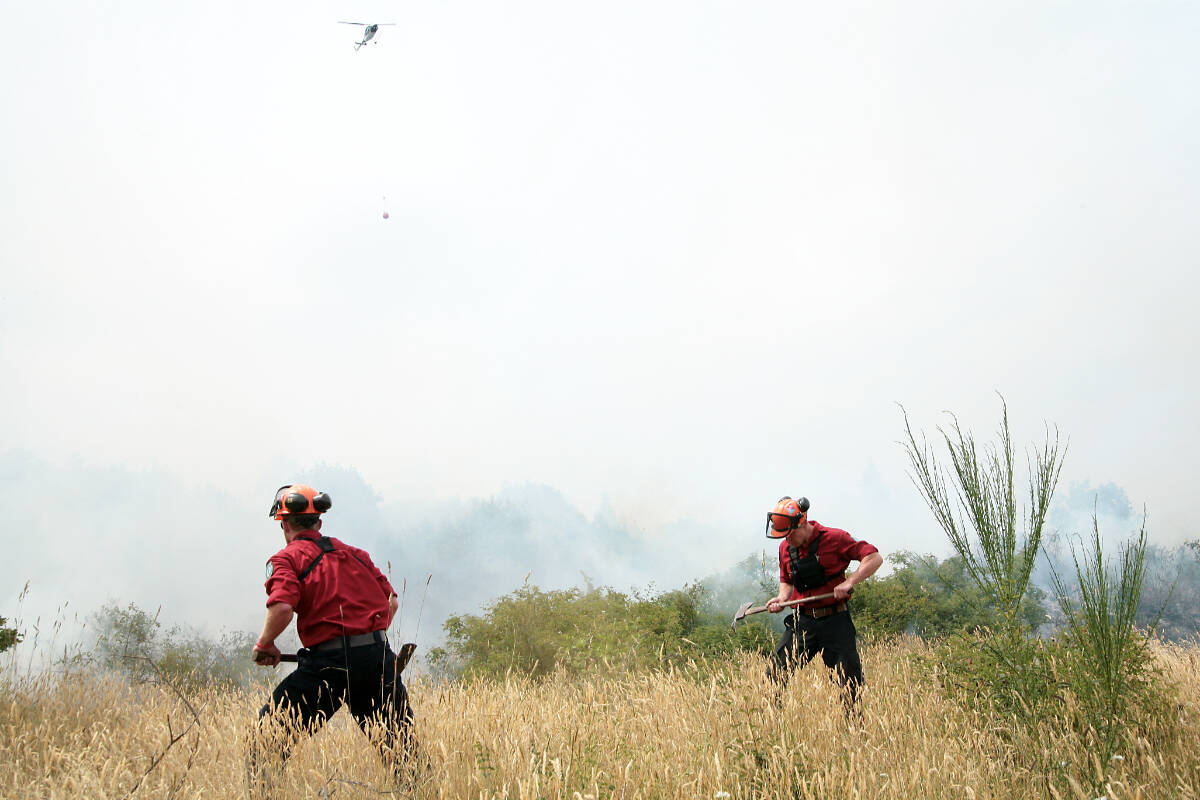B.C.’s Emergency Minister is warning of increased wildfire activity in B.C. as temperatures are expected to reach 30 C this weekend.
“With these heightened temperatures, we may see an increase in wildfire activity, particularly in the northeast,” Bowinn Ma said on Thursday (May 9) while in Victoria.
Ma and other land and resource-focused ministers offered updates on wildfire and drought mitigation efforts.
“We are prepared for the worst and hoping for the best,” Ma said.
Forests Minister Bruce Ralston said many wildfires are already burning in B.C. “(With) temperatures expected to climb this weekend, these numbers will likely grow,” he said.
According to the BC Wildfire Service, 194 active wildfires are currently burning in B.C. with the northeastern corner of B.C. showing two wildfires out of control.
Ralston identified the Fort Nelson area as a point of concern given rising temperatures and blustery conditions. His ministry has dispatched an incident management team to the region.
RELATED: B.C. Budget 2024: $405M for climate emergency mitigation and management
“I encourage residents in northeastern British Columbia, particularly in the Fort Nelson area, to remain vigilant and stay tuned to your local authority or First Nation over the next 24 to 48 hours,” Ralston said.
Minister of Water, Land and Resource Stewardship Nathan Cullen said B.C.’s snowpack level was at 66 per cent of normal as of May 1 — below last year’s figure of 91 per cent — as the provinces continues to get less rain and snow as usual.
“That’s having a lasting impact on water levels right across the province,” he said. “There is an increased potential for drought this summer.”
Specific areas of concern include Vancouver Island, the Upper Fraser West, the Middle Fraser region and the Lower Thompson.
Cullen, who was speaking remotely, added that the province has already asked heavy industrial users to curtail their consumption with additional plans in the pipeline. But he also urged all British Columbians to do their part to conserve water, a point echoed by Ma.
“We need to learn that water here in British Columbia is sadly not a resource that is as abundant as it may have been in years past as a result of climate change,” she said.
Thursday’s update coincided with Emergency Preparedness Week (May 5 to 11) and the ministers used the occasion to British Columbians to prepare for emergencies ahead.
Such steps include taking out insurance and developing a plan, Ma said, pointing to the availability of a new planning app that helps individuals develop their own emergency plan.
Government also announced improvements to the BC Wildfire Service app and the Drought Information Portal.

